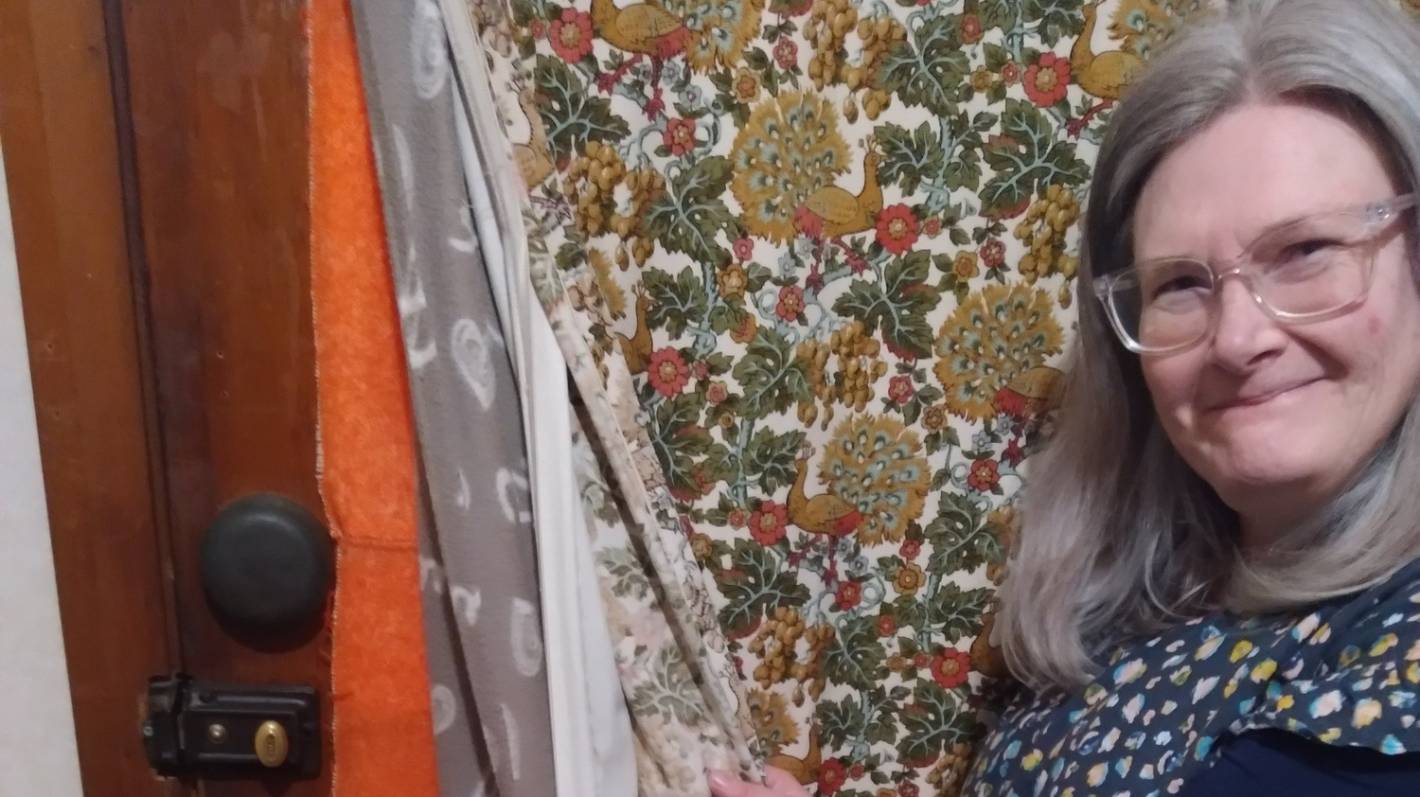This power-saving $70 window treatment is ‘the bee’s knees’ – no more condensation

It was -2C when Valerie Wilson got up for work one day this week. The previous day, it was snowing as she scraped ice off the windshield of her car parked outside in the Dunedin hillside suburb of Wakari.
But, inside Wilson’s 1939-built Kāinga Ora home the windows were dry as a bone.
Wilson, a Multiple Sclerosis Otago community advisor, has been using 3M window insulation kits on her windows for years, and says condensation is a thing of the past.
”It made an amazing difference: I’ve got old wooden windows, they’d cry all the time. I’d put a towel down and it would go mouldy.”
Wilson has taken part in an online Home Performance Advisor course, run by the science-based and BRANZ-backed HPA training organisation. HPA has certified more than 100 advisors, who have completed a longer three-day course to be able to go into people’s homes and help them to make it warm and dry.
Wilson says she learned a lot about making her own home drier and warmer, and likes sharing it with her family and clients.
Supplied
Valerie Wilson showing her front door which has a woolen cover, double layered curtain, and a door sausage above to keep the heat in.
She passes on advice such as: putting an extra layer behind your curtains (Wilson refers people to a curtain bank that is free for Community Service Card holders), running a dehumidifier when necessary, airing the house out when the sun is shining, and using the plastic window film. She also refers clients to the Dunedin City Council’s free eco design adviser service, which seven councils nationally fund to help householders with their home’s performance.
“My clients, a lot of people are not necessarily that well off, many are beneficiaries: They end up not being able to work,” Wilson says.
She also interacts with Otago University social work students and says some of their flats are “appalling”.
“(One student) woke up with bedding wet because of the condensation indoors. Some of the student flats here are not tickety-boo because the landlords have done no maintenance.”
At her own home, which she shares with her 16-year-old son and three cats, Wilson says visitors can’t tell there is a plastic covering on the windows. “People come in, and if they don’t know, they can’t tell. We have a great view of trees.
“I clean the windows (before applying), and use a dehumidifier first to make sure the windows are really dry. I use Aquaseal from the fish tank where there’s been gaps in the wooden frames. It’s the bee’s knees.”
Wilson, who has been living in the two-bedroom house for nearly 16 years, says the insulation kits are easy to apply. “My son did it for me. He was 12 or 13 at the time. It’s the only time the hairdryer comes out in my house.”
It cost $70 to do all the windows on her home.
Supplied
HPA co-manager Vicki Cowan says people need independent advice on how to optimise their home’s health.
Vicki Cowan, co-manager of HPA, says the idea of the service is to give people science-backed advice on how to make their homes healthier, independent of sales.
The organisation runs three courses, including a three-day course which certifies industry professionals for in-home assessments.
The online “Healthy Homes: Making energy work for whānau” course is for community-based workers who make home visits, such as nurses, social workers and financial mentors.
“When these workers understand their own homes and how they use energy at home, they can have informed conversations with the whānau they visit and either offer simple tips, or recognise that their whānau have serious housing issues, such as leaks, broken hot water cylinders, mould, high electricity bills, and they themselves need to refer on.”
Supplied
Ventilation is just one aspect of home performance that HPA focuses on.
It’s not only in the deep south that home energy advice is needed.
Lynita King-Godfrey does home visits with whānau in Northland. A kahukura/social worker by day, King-Godfrey says she learned a lot taking the course, including where she could save money on her own power bill.
A very wet winter has impacted in the far north, and she says many whānau she visits aren’t aware of the impact a damp and cold house can have on health.
“This is a problem for some of the older ones who are particularly vulnerable.
“Thinking that heating is just another bill we can’t afford, many in our community would rather put another jersey on than turn on the heater.”
“The training teaches us to let the free, warm sun in and open curtains during the day. It also teaches us to lock that free heat in with curtains that suit our windows,” says King-Godfrey.
She says other important tips include changing traditional light bulbs for energy-efficient LED bulbs and always switching off lights when you leave a room.





